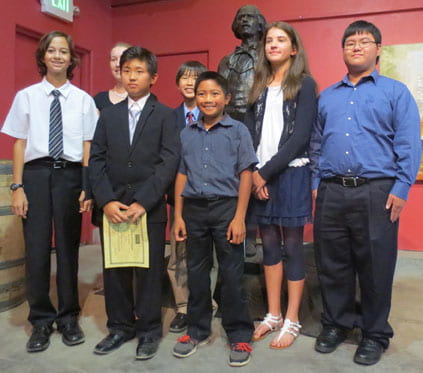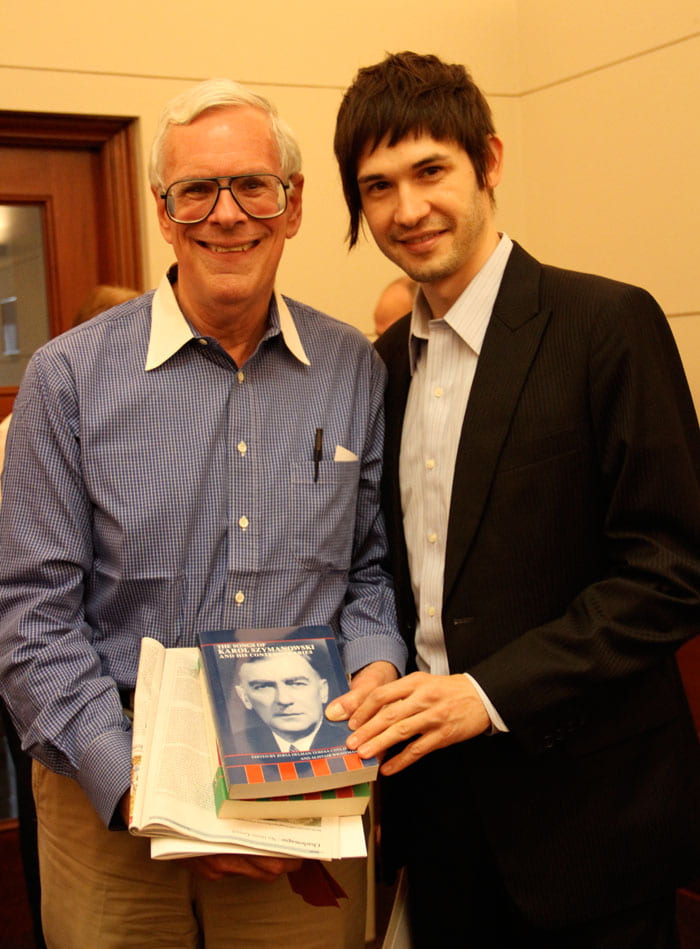Polish Music Newsletter Vol. 18, no. 11
PMC News
Paderewski Festival 2012: The Young Have It!
What can be better than a report about a bunch of young musicians, who are gifted, industrious, and interested in Polish music? It would certainly be listening to their live concerts during the first half of November, and this is something the Polish Music Center is very grateful for during this Thanksgiving season.
The recently completed auditions of the Paderewski Youth Piano Competition in Paso Robles featured seventeen pianists from three Central Coast Counties—San Luis Obispo, Santa Barbara, and Monterey—who entered in Junior (ages 10-14) and Senior (ages 15-18) categories. The winners include Jack Raventos (12), Sydney Haughian (12), Kevin Park (11), Daniel Ha (12), Cian Amor (11), Gianna Zufall (15), and Evan Lin (15). The are pictured below, in order from left to right.
The seven winners will be presented to the public at a free concert during the Paderewski Festival in Paso Robles on November 10. The concert is at 4 p.m. in the historic ballroom of the Paso Robles Inn. A reception, hosted, by the Consulate General of Poland in Los Angeles, will immediately follow the Youth Winners’ Recital. Besides works by Bach, Beethoven, Mozart, Debussy, and Khachaturian, these young talents will also perform solo piano compositions by Frederic Chopin and Ignacy Jan Paderewski.
This year’s Paderewski Festival in Paso also includes two concerts by young pianists from Poland, coming to California under the aegis of Paso Robles-Province of Tarnów Youth Exchange Program. A sister city agreement signed in 2008 has led to the travel of two groups of young pianists from California participating to Poland during 2009 and 2011 for this cultural exchange program. They participated in piano master classes and chamber music workshops, and performed in concerts at the Jagiellonian University in Kraków and at Paderewski’s manor house in Kąśna Dolna. In turn, in 2010 and again this year, young pianists from Poland are visiting California and will perform at the Paderewski Festival in Paso Robles. Urszula Barnaś (17), Marcin Krysa (20), and Robert Maciejowski (14), will be heard in two concerts on November 8 and 11, performing works by Chopin, Paderewski, Beethoven, Scriabin, and Statkowski.
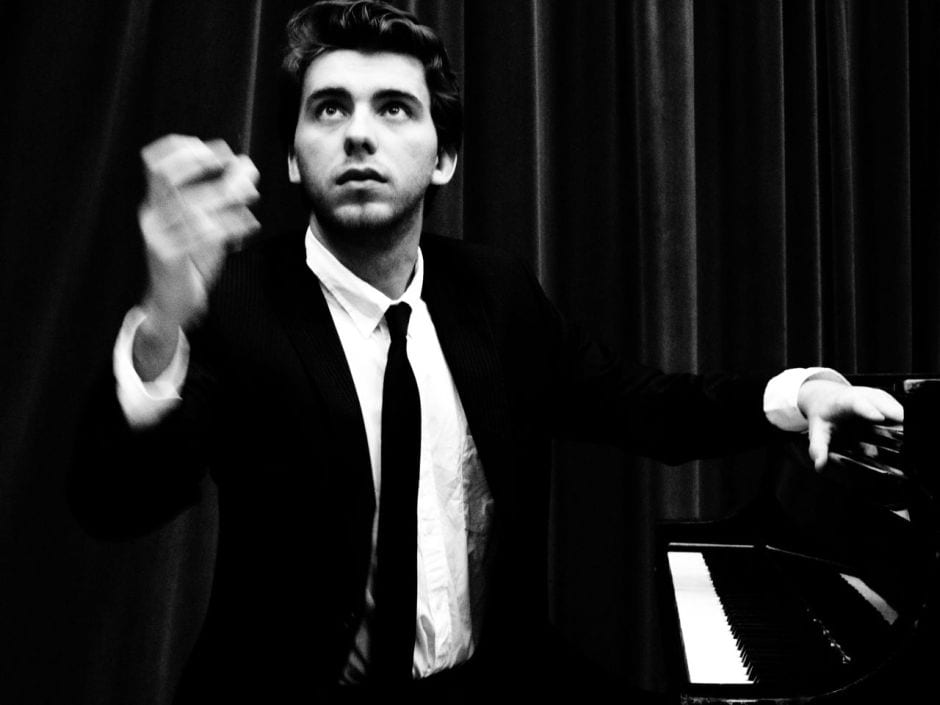 Come to think of it, the 2012 Paderewski Festival will be dominated by young musicians. Igor Lipiński—whose “Music and Magic” program on November 9 promises to be extraordinarily interesting and very entertaining—is a first-year doctoral student at Northwestern University in Chicago. This year’s Gala Concert performers, violinist Kinga Augustyn and pianist Efi Hackmey, are young East Coast professionals with spectacular international careers. Their November 10 concert will be devoted exclusively to violin and piano music by Polish composers, including Henryk Wieniawski, Karol Szymanowski, and Ignacy Jan Paderewski, of course!
Come to think of it, the 2012 Paderewski Festival will be dominated by young musicians. Igor Lipiński—whose “Music and Magic” program on November 9 promises to be extraordinarily interesting and very entertaining—is a first-year doctoral student at Northwestern University in Chicago. This year’s Gala Concert performers, violinist Kinga Augustyn and pianist Efi Hackmey, are young East Coast professionals with spectacular international careers. Their November 10 concert will be devoted exclusively to violin and piano music by Polish composers, including Henryk Wieniawski, Karol Szymanowski, and Ignacy Jan Paderewski, of course!
In additional to hearing and cheering on the best and brightest of the young generation, the Festival’s other attractions include the unveiling of the Paderewski monument in Paso Robles on November 10, a screening of Moonlight Sonata—a feature film with Paderewski in the main role (as a pianist and a character in this charming film)—lectures and exhibits on Paderewski on display at the Carnegie Library and the Pioneer Museum, and wine tastings everywhere you turn. During the Festival on Saturday, there is also an “Elegant Evening” in Paso, a lovely tradition of merchants and vendors welcoming the specially attired public to their establishments with gifts and other tokens of hospitality. This too, as far as it goes, is a celebration of youth and music. Hooray!
Review: 2012 Paderewski Lecture-Recital
By Nic Gerpe
Karol Szymanowski (1882-1937) has often been called Poland’s greatest composer after Chopin, and is credited with the modernization of Polish music. His catalogue includes a voluminous output of music for solo piano, violin, voice, operas, and several symphonies, yet his works are not often performed, particularly in the United States.
I first fell in love with the music of Szymanowski years ago when, as an undergraduate piano performance student, I visited the music library, intent on exploring the music of lesser-known composers. I sat for hours listening to this incredible music, wondering why I had never heard Szymanowski performed and determined that I must play as much as possible.
 I was absolutely delighted to learn that the Polish Music Center was going to celebrate the 75th anniversary of Szymanowski’s death by presenting a concert dedicated solely to his works. The concert featured a lecture by Maestro Grzegorz Nowak, and performances by pianist Mark Robson and tenor Timor Bekbosunov.
I was absolutely delighted to learn that the Polish Music Center was going to celebrate the 75th anniversary of Szymanowski’s death by presenting a concert dedicated solely to his works. The concert featured a lecture by Maestro Grzegorz Nowak, and performances by pianist Mark Robson and tenor Timor Bekbosunov.
The first portion of the recital featured a lecture devoted to Szymanowski’s violin repertoire, and Maestro Nowak presented a wonderful sampling of this music. Nowak’s speech was informative, energetic and engaging, and his historical lecture was interspersed with recorded excerpts of many violin works. I appreciated Nowak’s discussion of Szymanowski’s compositional evolution. His early output abounds with the trappings of late romanticism, and reminds one of the music of Scriabin and Wagner. Szymanowski’s travels to Italy, Sicily, Greece and North Africa were highly influential upon his middle period music, which takes on a somewhat impressionistic style, much in the manner of Debussy or Ravel, but with a highly individual structural, coloristic and harmonic language. Szymanowski’s later music adopts Polish folk influence, particularly that of the Tatra Highlanders.
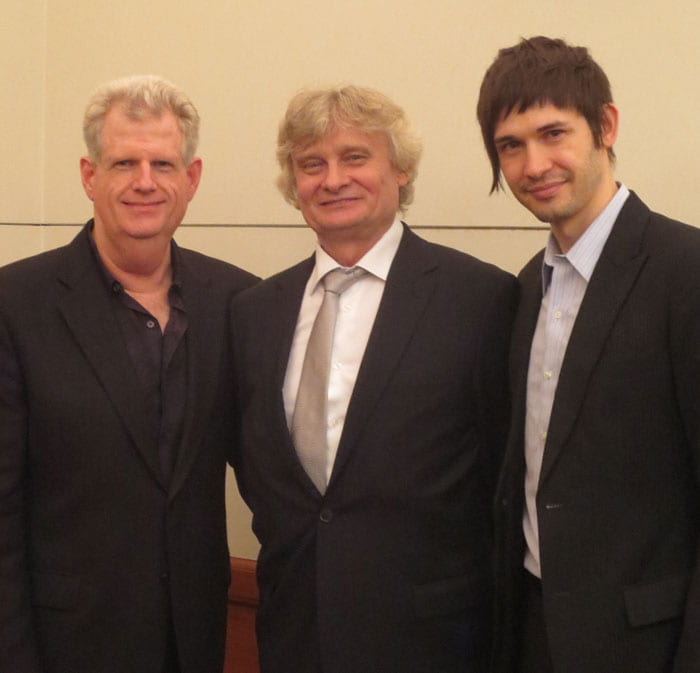 Nowak’s lecture and demonstration began with a discussion of Szymanowski’s Nocturne and Tarantella, Op. 28, a highly virtuosic work for violin and piano. He then played excerpts from Mythes, Op. 30, another work for violin and piano which fully demonstrates Szymanowski’s exotic, colorful and impressionistic middle period style. Nowak then discussed the two violin concertos, the first of which is the more “popular’’ of the two and fits squarely into Szymanowski’s middle period. The second concerto demonstrates the folk influence that would dominate Szymanowski’s final period. Indeed, the only period of Szymanowski’s musical output that was not really represented was his early music, which is somewhat of a shame because the composer’s Op. 9 violin sonata is a massive and interesting work and I felt that it deserved some mention. Although the lecture was directed towards Szymanowski’s violin music, I would have loved to hear Nowak speak about the composer’s symphonic music, especially given Maestro Nowak’s prowess as a conductor. The lecture as a whole was extremely enjoyable and informative, and set the stage quite well for the live performance in the second half.
Nowak’s lecture and demonstration began with a discussion of Szymanowski’s Nocturne and Tarantella, Op. 28, a highly virtuosic work for violin and piano. He then played excerpts from Mythes, Op. 30, another work for violin and piano which fully demonstrates Szymanowski’s exotic, colorful and impressionistic middle period style. Nowak then discussed the two violin concertos, the first of which is the more “popular’’ of the two and fits squarely into Szymanowski’s middle period. The second concerto demonstrates the folk influence that would dominate Szymanowski’s final period. Indeed, the only period of Szymanowski’s musical output that was not really represented was his early music, which is somewhat of a shame because the composer’s Op. 9 violin sonata is a massive and interesting work and I felt that it deserved some mention. Although the lecture was directed towards Szymanowski’s violin music, I would have loved to hear Nowak speak about the composer’s symphonic music, especially given Maestro Nowak’s prowess as a conductor. The lecture as a whole was extremely enjoyable and informative, and set the stage quite well for the live performance in the second half.
 Pianist Mark Robson and tenor Timor Bekbosunov performed a variety of works spanning Szymanowski’s entire compositional development. Beginning with the Op. 1 Preludes for piano, the program included the middle movement of the Metopes, Op. 29, several of the Mazurkas, the final movement of the Masques, Op. 34, and the Songs of the Infatuated Muezzin. Although I enjoyed the entire concert, my favorite performances of the evening were of the Op. 1 Preludes and the Songs of the Infatuated Muezzin. Mr. Robson’s performance of the Preludes was nuanced and heartfelt, and the chemistry between Robson and Bekbosunov combined with each performer’s great musicality made the Songs incredibly convincing and captivating. Mr. Bekbosunov captured the exoticism and sensuality of the texts quite beautifully. I thought that the programming of the individual movements from Metopes and Masques (Calypso and The Serenade of Don Juan, respectively) could have been more successful if either one of those complete cycles had been performed, since the individual movements make more sense in the context of their partners. Additionally, because Szymanowski’s middle period music, while extraordinarily beautiful and colorful is also extremely complex, I felt that it would have been better represented had more of it been performed. Still, given the constraints of time and Szymanowski’s voluminous and extremely varied output, I felt that the program gave the listener a very attractive sampling of the composer’s works.
Pianist Mark Robson and tenor Timor Bekbosunov performed a variety of works spanning Szymanowski’s entire compositional development. Beginning with the Op. 1 Preludes for piano, the program included the middle movement of the Metopes, Op. 29, several of the Mazurkas, the final movement of the Masques, Op. 34, and the Songs of the Infatuated Muezzin. Although I enjoyed the entire concert, my favorite performances of the evening were of the Op. 1 Preludes and the Songs of the Infatuated Muezzin. Mr. Robson’s performance of the Preludes was nuanced and heartfelt, and the chemistry between Robson and Bekbosunov combined with each performer’s great musicality made the Songs incredibly convincing and captivating. Mr. Bekbosunov captured the exoticism and sensuality of the texts quite beautifully. I thought that the programming of the individual movements from Metopes and Masques (Calypso and The Serenade of Don Juan, respectively) could have been more successful if either one of those complete cycles had been performed, since the individual movements make more sense in the context of their partners. Additionally, because Szymanowski’s middle period music, while extraordinarily beautiful and colorful is also extremely complex, I felt that it would have been better represented had more of it been performed. Still, given the constraints of time and Szymanowski’s voluminous and extremely varied output, I felt that the program gave the listener a very attractive sampling of the composer’s works.
It was wonderful to hear a performance dedicated to Szymanowski’s music and the Polish Music Center did an outstanding job putting together this program. Maestro Nowak’s lecture and the performances by Mark Robson and Timur Bekbusonov were excellent. With more events such as these, perhaps Szymanowski will receive the attention he so rightly deserves.
Nic Gerpe (DMA, 2012; MM, 2008; BM 2006, University of Southern California) recently completed his Doctor of Musical Arts degree in Piano Performance at the USC Thornton School of Music. He studied extensively with Bernadene Blaha, Kevin Fitz-Gerald and Stewart Gordon. Nic has also worked with Earl Wild, Arnold Steinhardt, and Stephen Drury. Nic is a proponent of contemporary music, and his repertoire includes works by Rzewski, Crumb, Corigliano, Berio, and Szymanowski. Nic has given numerous premiere performances including the World Premiere of Dale Trumbore’s Piano Concerto as soloist with the USC Thornton Symphony and the US Premiere of Thomas Demenga’s Concerto for two cellos, percussion and prepared piano with members of the LA Phil, LA Chamber Orchestra, and Colburn and USC Symphonies. Nic has performed across the US and Canada and is an active chamber musician as well as soloist and recitalist. Nic’s duo with violinist Pasha Tseitlin is dedicated to the performance of the music of our time and the pair performs frequently in the Los Angeles and San Diego areas.
New Donations To The PMC
We would like to thank the following individuals and institutions for their donations over the course of the last few months:
Director Mieczysław Kominek of the Polskie Centrum Informacji Muzycznej in Warsaw has continued his generous support of the audiovisual archives at the Polish Music Center. The most recent donation was of materials from the 2011 Warszawska Jesień [Warsaw Autumn] Festival, including the program booklet and the 7-CD set entitled “The Sound Chronicle of the 2011 Warsaw Autumn.” Presenting information about the newest works of contemporary Polish and international composers, materials from the annual Warsaw Autumn Festival continue to be some of the most often used items in the PMC collection. Thank you for this continued collaboration!
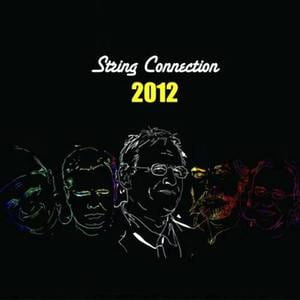 During a recent visit to Los Angeles, composer Krzesimir Dębski added to the already extensive collection of his music—including scores, manuscripts, and recordings—held by the PMC. The newest additions included two CDs of his performances and film compositions, respectively: String Connection 2012 and Wielcy Komozytorzy Filmowi: Krzesimir Dębski
During a recent visit to Los Angeles, composer Krzesimir Dębski added to the already extensive collection of his music—including scores, manuscripts, and recordings—held by the PMC. The newest additions included two CDs of his performances and film compositions, respectively: String Connection 2012 and Wielcy Komozytorzy Filmowi: Krzesimir Dębski
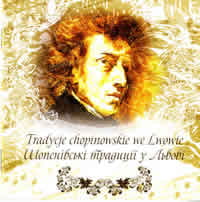 Tradycje Chopinowskie we Lwowie [Chopin’s Legacy in Lwów] – a CD with solo piano and chamber works by Karol Mikuli (1819-1897), Mieczysław Sołtys (1863-1929), and Stanisław Niewiadomski (1857-1936), performed by pianist Gabriela Machowska-Kopietz, soprano Katarzyna Kalisz, bartitone Witold Żołądkiewicz, and violinists Anna Orlik, Anna Betley and Marta Zalewska. Since the entire repertoire presented on this recording is practically unknown, the selections by these three composers shed very important light on the musical life in Lwów during the second half of the nineteenth century. Mikuli—a student of Chopin in Paris—served as director of the Lwów Music Society and Lwów Conservatory of Music for over 30 years. To several generations of pianists, Mikuli not only transmitted Chopin’s own approach to piano playing, but also served as editor of the first complete edition of Chopin’s music. A noted composer whose students included Sołtys and Niewiadomski, Mikuli’s Mazurkas, Polonaises and Ballades for piano were strongly inspired by his studies with Chopin. This rare and extremely valuable recording was produced by the Consulate General of the Republic of Poland in Lwów, Ukraine, and donated to the Polish Music Center by His Excellency Jarosław Drozd, Deputy Chief of Mission and Consul General in Lwów.
Tradycje Chopinowskie we Lwowie [Chopin’s Legacy in Lwów] – a CD with solo piano and chamber works by Karol Mikuli (1819-1897), Mieczysław Sołtys (1863-1929), and Stanisław Niewiadomski (1857-1936), performed by pianist Gabriela Machowska-Kopietz, soprano Katarzyna Kalisz, bartitone Witold Żołądkiewicz, and violinists Anna Orlik, Anna Betley and Marta Zalewska. Since the entire repertoire presented on this recording is practically unknown, the selections by these three composers shed very important light on the musical life in Lwów during the second half of the nineteenth century. Mikuli—a student of Chopin in Paris—served as director of the Lwów Music Society and Lwów Conservatory of Music for over 30 years. To several generations of pianists, Mikuli not only transmitted Chopin’s own approach to piano playing, but also served as editor of the first complete edition of Chopin’s music. A noted composer whose students included Sołtys and Niewiadomski, Mikuli’s Mazurkas, Polonaises and Ballades for piano were strongly inspired by his studies with Chopin. This rare and extremely valuable recording was produced by the Consulate General of the Republic of Poland in Lwów, Ukraine, and donated to the Polish Music Center by His Excellency Jarosław Drozd, Deputy Chief of Mission and Consul General in Lwów.
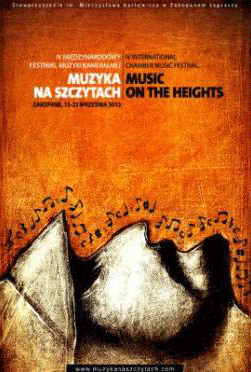 Danuta Sztencel, Director of the Muzyka na Szczytach Festival that takes place annually in the Polish mountain resort town of Zakopane, has donated a CD with highlights from the 2011 Festival. Works by Ignacy Jan Paderewski, Karol Szymanowski, Henryk Mikołaj Górecki as well as by Gustav Mahler, Pyotr Tchaikovsky, Claude Debussy, Franz Liszt, and Antonin Dvorak on this recording give a glimpse of the Festival’s rich offering of concerts. Artists such as the King’s Singers, Meccorre and Royal String Quartets, and pianists Ewa Kupiec and Miroslav Kultyshev who were featured in the 2011 Festival bring the very best in classical music to a charming town that was once home to Szymanowski and Górecki. In addition, Ms. Sztencel had also donated a detailed program booklet from the 2012 Festival to the PMC.
Danuta Sztencel, Director of the Muzyka na Szczytach Festival that takes place annually in the Polish mountain resort town of Zakopane, has donated a CD with highlights from the 2011 Festival. Works by Ignacy Jan Paderewski, Karol Szymanowski, Henryk Mikołaj Górecki as well as by Gustav Mahler, Pyotr Tchaikovsky, Claude Debussy, Franz Liszt, and Antonin Dvorak on this recording give a glimpse of the Festival’s rich offering of concerts. Artists such as the King’s Singers, Meccorre and Royal String Quartets, and pianists Ewa Kupiec and Miroslav Kultyshev who were featured in the 2011 Festival bring the very best in classical music to a charming town that was once home to Szymanowski and Górecki. In addition, Ms. Sztencel had also donated a detailed program booklet from the 2012 Festival to the PMC.
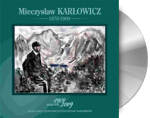 A few rare and very welcome items were donated this month by Agnieszka Kreiner, conductor of the Tatra Chamber Orchestra in Zakopane. Amongst them were the score and part for Mieczysław Karłowicz’s Serenada for Cello and Piano—a charming and practically unknown work, dedicated to Zygmunt Butkiewicz (1872-1935), a contemporary of Karłowicz and a well-known cello virtuoso who taught at the Music Conservatory in Poznań. Ms. Kreiner also donated two CDs: one devoted to works by Karłowicz and the other featuring her own arrangements of music by Ignacy Jan Paderewski, Karol Szymanowski, Wacław Geiger (1907-1988), and Faustyn Kulczycki (1894-1960). The ensemble heard on the CDs, Tatra Chamber Orchestra, is a group of professional musicians presenting classical and folk music of the Tatra region in concert. They also collaborate with many local musicians, dance bands and other folk music ensembles.
A few rare and very welcome items were donated this month by Agnieszka Kreiner, conductor of the Tatra Chamber Orchestra in Zakopane. Amongst them were the score and part for Mieczysław Karłowicz’s Serenada for Cello and Piano—a charming and practically unknown work, dedicated to Zygmunt Butkiewicz (1872-1935), a contemporary of Karłowicz and a well-known cello virtuoso who taught at the Music Conservatory in Poznań. Ms. Kreiner also donated two CDs: one devoted to works by Karłowicz and the other featuring her own arrangements of music by Ignacy Jan Paderewski, Karol Szymanowski, Wacław Geiger (1907-1988), and Faustyn Kulczycki (1894-1960). The ensemble heard on the CDs, Tatra Chamber Orchestra, is a group of professional musicians presenting classical and folk music of the Tatra region in concert. They also collaborate with many local musicians, dance bands and other folk music ensembles.
Thank you to all of these generous donors, as well as all patrons who purchased books and CDs and donated to the PMC during the 2012 Paderewski Lecture-Recital on October 14. Serdecznie dziękujemy!
News
Knapik World Premiere At 2012 Fitelberg Competition
The Silesian Philharmonic and the Music Foundation for the International Grzegorz Fitelberg Competition for Conductors presents the 9th International Grzegorz Fitelberg Competition for Conductors, which will be held in Katowice from November 16-25, 2012.
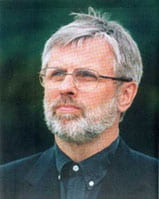 The Fitelberg Competition will open with a Gala Concert performed by the Silesian Philharmonic Orchestra and Choir on November 16 in the concert hall of the Szymanowski Music Academy in Katowice. Led by Maestro Błaszczyk, the program includes the world premiere of Beauty Radiated in Eternity by Eugeniusz Knapik (pictured at right), as well as Concert Overture by Stanisław Moryto. The finalists in the Competition will be announced to the public late on November 23, and a concert featuring the winners will be presented at the Szymanowski Music Academy on November 25. A day later the same program will be given at the National Philharmonic Hall in Warsaw.
The Fitelberg Competition will open with a Gala Concert performed by the Silesian Philharmonic Orchestra and Choir on November 16 in the concert hall of the Szymanowski Music Academy in Katowice. Led by Maestro Błaszczyk, the program includes the world premiere of Beauty Radiated in Eternity by Eugeniusz Knapik (pictured at right), as well as Concert Overture by Stanisław Moryto. The finalists in the Competition will be announced to the public late on November 23, and a concert featuring the winners will be presented at the Szymanowski Music Academy on November 25. A day later the same program will be given at the National Philharmonic Hall in Warsaw.
From among the 164 entries, the Fitelberg Competition committee has selected 50 participants from 22 countries to compete in this three-round Competition. The jury will be headed by Maestro Antoni Wit, artistic director of the Warsaw Philharmonic, and also includes: Mirosław Jacek Błaszczyk (Poland), Juozas Domarkas (Lithuania), Piotr Gajewski (USA), Martinez Izquierdo (Spain), Eugeniusz Knapik (Poland), John Neschling (Brazil), Marek Pijarowski (Poland), Maximiano Valdes (Chile), Takuo Yuasa (Japan), and Michael Zilm (Germany). Polish President Bronisław Komorowski is the Honorary Patron of the Competition.
[Source: pwm.com.pl]
Henryk Wars – World Premiere
 On November 9, Filharmonia Dolnośląska [Lower Silesian Philharmonic] in Jelenia Góra, Poland will present the world premiere of Sonatina for orchestra by Henryk Wars on a concert program dedicated to the celebration of Poland’s Independence Day. This rare orchestral work by Wars was dedicated to the memory of Maurice Ravel, after Wars met the composer in Paris some years earlier. The manuscript of the Sonatina for orchestra is held in the library of the Academy of Music in Poznań. Dariusz Tabisz (pictured at left) will serve as conductor for the evening.
On November 9, Filharmonia Dolnośląska [Lower Silesian Philharmonic] in Jelenia Góra, Poland will present the world premiere of Sonatina for orchestra by Henryk Wars on a concert program dedicated to the celebration of Poland’s Independence Day. This rare orchestral work by Wars was dedicated to the memory of Maurice Ravel, after Wars met the composer in Paris some years earlier. The manuscript of the Sonatina for orchestra is held in the library of the Academy of Music in Poznań. Dariusz Tabisz (pictured at left) will serve as conductor for the evening.
Also on the program are Aleksander Tansman’s Musique de cour for guitar and chamber orchestra—performed with guitar soloist Wojciech Popielarz—Mieczysław Karłowicz’s Serenada for strings op. 2, and Zygmunt Noskowski’s symphonic poem Steppe, op. 66.
[Source: press release, filharmonia.jgora.pl]
US Premiere For Ptaszyńska
The US premiere of Red Rays for Flute & Piano by Marta Ptaszyńska, a Polish composer who serves as the Helen B. & Frank L. Sulzberger Professor of Music and the Humanities at the University of Chicago, was presented by the CUBE Contemporary Ensemble. Featuring guest flutist from Poland, Agata Igras-Sawicka, the concert took place at Fulton Recital Hall at University of Chicago on Sunday, October 21.
Other composers featured on this Polish-American Contemporary Music Concert were Witold Lutosławski, Elżbieta Sikora, Janice Misurell-Mitchell, Augusta Read Thomas, and Toru Takemitsu.
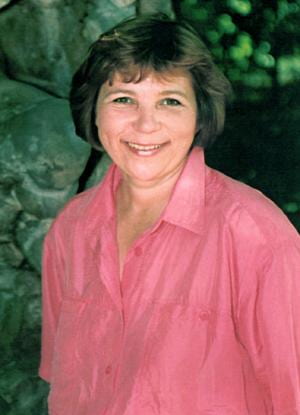
Marta Ptaszyńska’s music has been performed around the world at many international festivals, including ISCM World Music Days, the Warsaw Autumn International Festivals, the Salzburg Festival, the Schleswig- Holstein Music Festival, the Huddersfield Contemporary Music Festival, the Prix Futura in Berlin, and many others. She has received commissions from major orchestras and opera houses including the Chicago Symphony Orchestra, the Cincinnati Symphony, the Cleveland Chamber Orchestra, the Polish Chamber Orchestra, the Sinfonia Varsovia, the National Symphony Orchestra, and the National Opera in Poland. Her first opera, Oscar of Alva in 6 scenes (1971-72, rev. 1986; libretto after Lord G. Byron), received the Polish Television Award and was presented in 1989 at the Television Opera Festival in Salzburg, Austria. Her opera for children, Mister Marimba (libretto: Agnieszka Osiecka), has enjoyed phenomenal success with 114 performances over eight seasons at the National Opera in Warsaw, which in 2008 premiered her second opera Magic Doremik (2006-2007; libretto after Gianni Rodari). Her newest opera, The Lovers from the Valldemosa’s Cloister, was commissioned for the Chopin Bicentennial and was premiered in December 2010 by the Grand Opera Theatre in Łódź, Poland.
She is the composer of such well known works as the Holocaust Memorial Cantata, performed several times under the baton of Lord Yehudi Menuhin, Concerto for Marimba, Winter’s Tale, Sonnetsto Orpheus, Moon Flowers, Mosaics for string quartet ( 2002), Trois visions de l’arc-en-ciel for clarinet, violin, viola, cello, percussion & piano (2008), and Street Music for 70-person percussion orchestra (2008), as well as other popular compositions for solo percussion (Siderals, Graffito, Spider Walk, Space Model, and Letter to the Sun). Ptaszyńska has been honored with many prizes and awards, including the 2011 Lifetime Achievement Award of the Polish Composers’ Union, the 2010 Simon Guggenheim Award, the Special Award given by the Minister of Culture of Poland for Outstanding Production for her opera The Lovers from the Valldemosa’s Cloister, the 2006 Benjamin H. Danks Award of the American Academy of Arts and Letters, The Fromm Music Foundation Award, First Prize at the UNESCO International Rostrum of Composers in Paris, several awards from the Percussive Arts Society, multiple ASCAP Awards, and, in 1995, the Officer Cross of Merit of the Republic of Poland.
Prior to coming to the University of Chicago, Ptaszyńska taught composition at Northwestern University, Indiana University in Bloomington, the Cincinnati College-Conservatory of Music, the University of California at Berkeley and at Santa Barbara, and Bennington College in Vermont. Her music is published by Polish Music Publishers [PWM] and by Theodore Presser in the US. Recordings of her work are available on CD Accord-Universal, Muza Polish Records, Chandos, Olympia, Dux, Bayer Records, and Pro Viva Sonoton labels.
[Source: press release, cubeensemble.com, music.uchicago.edu]
New Composer-In-Residence For Kraków Phil
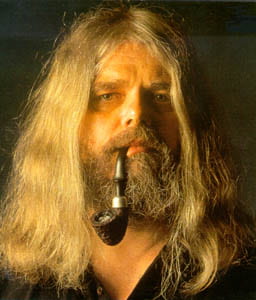 Wojciech Ziemowit Zych (b. 1976) will be the new composer in residence for the Kraków Philharmonic’s 2012-2013 Season. Zych is currently teaching at the Kraków Academy of Music, where he received his Doctor of Arts degree in 2007. Since 2007 Mr. Zych has been a member of the Polish Composers’ Union and during the years 2006-2008 he has served on the Repertoire Committee of the Warszawska Jesień Festival.
Wojciech Ziemowit Zych (b. 1976) will be the new composer in residence for the Kraków Philharmonic’s 2012-2013 Season. Zych is currently teaching at the Kraków Academy of Music, where he received his Doctor of Arts degree in 2007. Since 2007 Mr. Zych has been a member of the Polish Composers’ Union and during the years 2006-2008 he has served on the Repertoire Committee of the Warszawska Jesień Festival.
The Kraków Philharmonic will perform Zych’s Hommage a Kantor on November 22 and 23. In February 2013, the Philharmonic will give two further performances of Zych’s works: Solilokwium II – Pejzaż myśli zamarzłych na klarnet basowy solo i 20 instrumentów [Soliloquy II—The Landscape of Frozen Thoughts for Bass Clarinet Solo and 20 Instruments] on February 8, and Pictor coeli for choir a cappella on February 23.
[Source: pwm.com.pl]
Górale Culture Explored By Gromada
A sentimental and illuminating collection of insights about a unique mountain region of Poland which pulsates with invigorating mountain air, native patriotism, regional culture, distinctive traditions, and physical beauty characteristic both of its landscape and of its people. Engaging to read, educational to absorb, it is the product of genuine scholarship and personal affection on the part of its author, a distinguished Polish Ameridan educator with deep family roots in the Tatra highlands.
–Zbigniew Brzezinski, National Security Advisor under President Carter. Counselor, Center of Strategic and International Studies
There are many reasons to read this book. Part family memoir, part the story of a diasporic community, and part a history of USA and Polish relations. Tatra Highlander Folk Culture in Poland and America is first and foremost a story about human struggles and triumphs. Drawing from sixty-five years of the quarterly, The Tatra Eagle, this book is a singular accomplishment that captures the story of the górale, the people from the Polish Tatra Mountains, the beautiful alpine region in the south of Poland on the border with Slovakia. I personally have found the book to be an invaluable source of information about Central Europe and ultimately about the many diasporic communities that are so vital to the USA. This collection in a single volume of Gromada’s best articles is a real treasure.
–Timothy J. Cooley, Professor of Ethnomusicology, University of California, Santa Barbara
 Tatra Highlander Folk Culture in Poland and America
Tatra Highlander Folk Culture in Poland and America
by Thaddeus V. Gromada
Tatra Eagle Press
www.amazon.com
A new book by Thaddeus V. Gromada, Tatra Highlander Folk Culture in Poland and America, is a series of essays devoted to the folk culture of the Tatra Mountain region in Poland and to the Tatra Highlanders (górale) who brought this culture in America in the late 19th and early 20th centuries. The essays are designed to spread the good news of the richness of this folk culture, which has had a significant impact on Poland’s high culture, especially its music. The book will give the reader a new and refreshing perspective on Polish culture.
Thaddeus V. Gromada received his Ph.D. in East Central European History at Fordham University. He is currently Professor Emeritus of European History at New Jersey City University. From 1991 to 2011 he served as Executive Director of the Polish Institute of Arts & Sciences of America (PIASA) and from 2008 to 2011 was also its President. Editor and contributor of several books and author of many articles in scholarly journals dealing with Polish-Czech-Slovak relations, Immigration and Ethnic History of the U.S., and Polish Tatra folk culture. He is the founder and co-editor with his sister Jane Gromada Kedron of The Tatra Eagle (Tatrzański Orzeł). He was elected as an honorary member of the Związek Podhalan (Highlanders Alliance) in Poland as well as in America. In 2000 he received the Commanders Cross of Merit from the President of Poland
This book is available on www.amazon.com or you can order directly from Tatra Eagle Press for a at 30% discount: Tel. 201 288-3815 or 336-940-5656.. Sale price: $10. Plus $2.50 Total; $12.50. Make checks payable to “Tatra Eagle Press” and send to 31 Madison Ave, Hasbrouck Heights, NJ 07604.
[Source: press release (Polish Global Village), writingpolishdiaspora.blogspot.com, amazon.com]
New Music: New Audiences
New Music: New Audiences is an international project focused on developing new concert formats for contemporary classical music. On October 24, the New Music: New Audiences project officially opened at a two-day conference in Bruxelles. The conference is a kick-off platform for the cooperation between the project’s 16 partner organizations and 31 ensembles from 17 European countries. Participating Polish organizations include the Polish Composers’ Union and Adam Mickiewicz Institute, and Polish ensembles involved are Orkiestra Muzyki Nowej and Kwartludium.
The New:Aud Conference is where ensemble leaders, arts managers and organizational leaders met to make practical decisions on the project course and to explore the latest developments in classical music concerts. Participants were interested in concerts that explore new venues, new cross-collaborations, new ways of presenting music and using new media to communicate with audiences. Descriptions of the seven themes that were explored during the conference can be found at the Working Communities page.
[Sources: polmic.pl, newaud.eu]
Kile Smith On Szymanowski
Hosted by Kile Smith and Jack Moore, ‘Discoveries from the Fleisher Collection’is a radio program uncovering the unknown, rediscovering the little-known, and taking a fresh look at the remarkable treasures housed in the Fleisher Collection of Orchestral Music housed in the Parkway Central Library of the Free Library of Philadelphia. Now in its 11th year, ‘Discoveries’ is broadcast on WRTI 90.1 FM in Philadelphia on the 2nd Saturday of the month. The program is also available online on the all-classical webstream at wrti.org and broadcast as encore presentations every Wednesday at 7 pm on WRTI HD-2. Visit the show’s archive at www.freelibrary.org
October’s ‘Discoveries’ program was devoted to the music of Karol Szymanowski (1882-1937), particularly Szymanowski’s Violin Concerto No. 1 (1916) and his Symphony No. 3“The Song of the Night” (1916). In anticipation of the program, Kile Smith posted the following discussion of Szymanowski on the WRTI-FM blog:
Squeezed between a Russian revolution that destroyed his home, and a world war that destroyed the rest, Karol Szymanowski finally found escape in the art that had so long eluded him.
By 1914, the Polish composer, born in the Ukraine, had come to an impasse. His preparation and his training were failing him. Folk music had energized many other cultures in his generation, but he saw it as old-fashioned and an artifice. Chopin, whom he loved, was the greatest of all Polish composers, but seemed both ubiquitous and beside the point. Expression in the new century demanded different methods and different sounds. But how to choose from among them?
The extravagant German Romanticism of Mahler and Richard Strauss trumpeted irrevocable cadences of cosmic certitude. In France, Debussy and Ravel were knitting wisps of hinted harmonic incense into glowing twilights of ineffable sadness. Young Polish poets spoke of transcending life, penetrating the universe, and of an art evolving into the highest of all religions. The Russian Scriabin was singing of this new aspiration in his symphonies.
Everywhere Szymanowski looked, things were new. He traveled to Sicily and North Africa, studying Arabic, Greek, and Eastern mythology. As exoticism started to shift boundaries for him, he noticed something strange: even tradition could be enticing. But when the Great War erupted in 1914, he was forced to cease wandering and return home. There, through long hours of work, a new language began to emerge. By 1916, he had composed two works—huge works—that would define his career, the First Violin Concerto and the Third Symphony.
It was almost as if he wasn’t choosing a new musical expression, but that these influences were choosing him. The sure tonal direction of the Romantics was there, but rising and dissipating faster. Parisian Impressionism spun out high melismatic solos that sounded Moorish at times. Harmonies were at turns bold and muted, with altered scales suggesting Russian mysticism, Debussy, or the East. It was all fashioned with brilliant orchestration as strong as Strauss and as piquant as Ravel. The Persian poetry of Rumi was turned into a symphony about planets, constellations, sleeping, and gods:
“Such quiet, others sleep… I and God alone together in this night… Truth with gleaming wing is shining in this night!”
In that one year, Karol Szymanowski awoke his art. This concerto and symphony are astonishing works of freshness and expression. They sound like everything around at the time, yet like nothing else.
It is difficult to describe music at all, but Szymanowski’s music seems especially so, being so varied and striking. Perhaps Simon Rattle said it best. On his first encounter with this composer (with his later Stabat Mater), Sir Simon relates that it was love at first sight. “I cannot talk objectively about Szymanowski, for you cannot expect objectivity or reason from someone in love. And reason is out of place where his music is concerned.”
When he’s not producing podcasts of CD reviews for WRTI, writing for the Broad Street Review, or teaching music notation at Temple University, Kile Smith is busy working at his life’s calling—as a composer of orchestral, choral, chamber, and liturgical works. His works are praised by critics and audiences for their emotional power, direct appeal, and strong voice. Gramophone magazine calls his Vespers “spectacular,” possessing “sparkling beauty.” The Philadelphia Inquirer describes his music as “breathtaking.” Kile Smith is also the former Curator of the Fleisher Collection of Orchestral Music at the Free Library of Philadelphia
[Sources: ‘Discoveries’ Newsletter, wrti.org ]
Digesting Contemporary Music
On September 30, Polskie Towarzystwo Muzyki Współczesnej [Polish Society for Contemporary Music] launched their Fall 2012 series of meetings with composers, called “Muzyka współczesna nie gryzie” [Contemporary Music Does Not Bite]. Featuring discussions with Rafał Augustyn, Sławomir Czarnecki, Hanna Kulenty, Alicja Gronau, Bartosz Kowalski and Grażyna Pstrokońska-Nawratil, these educational events will continue until December 2. Discussions with each artist will be augmented by audio and video presentations and moderated by Małgorzata Kołcz, a double bass performer and author of many cultural initiatives. All sessions are held on Sunday afternoons near Warsaw’s Old Town Square, at 27/29 Brzozowa Street. Admission is free.
[Sources: polmic.pl, ptmw.art.pl]
Chopin Fdn Concerts In FL
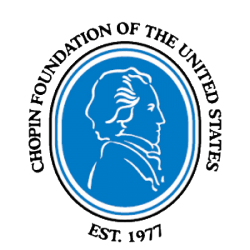 The Chopin Foundation of the US presents the next event in their “Chopin Salon Concert” series, featuring pianist and Foundation Artistic Director Adam Aleksander on November 18, 2012, 4 pm. These salon-style concerts are followed by a wine reception and post-concert dinner with wine, and are held at the elegant La Gorce Country Club, 5685 Alton Road, Miami Beach. Concert reservations, as well as payment for post-concert dinners, must be made at least one week prior to the concert. To reserve as a member or a guest, call 305/868-0624, or visit www.chopin.org.
The Chopin Foundation of the US presents the next event in their “Chopin Salon Concert” series, featuring pianist and Foundation Artistic Director Adam Aleksander on November 18, 2012, 4 pm. These salon-style concerts are followed by a wine reception and post-concert dinner with wine, and are held at the elegant La Gorce Country Club, 5685 Alton Road, Miami Beach. Concert reservations, as well as payment for post-concert dinners, must be made at least one week prior to the concert. To reserve as a member or a guest, call 305/868-0624, or visit www.chopin.org.
Also coming up in the Fort Lauderdale area is the next “Chopin For All” concert, featuring Jonah Kim – cello and Andrew Tyson – piano on December 1 and 2. All concerts in the Chopin for All series are presented in two locations: Dec. 1 in Ft. Lauderdale and Dec. 2 in Coral Gables. Admission FREE – no reservations, no tickets necessary.
November 18, 2012, 4 pm
Adam Aleksander in concert
La Gorce Country Club, Miami Beach, FL
Call 305/868-0624 or visit www.chopin.org for tickets
December 1, 2012, 3 PM
Chopin For All: Jonah Kim, cello and Andrew Tyson, piano
Broward County Main Library
100 S. Andrews Avenue, downtown Fort Lauderdale, FL
FREE admission
December 2, 2012, at 3 PM
Chopin For All: Jonah Kim, cello and Andrew Tyson, piano
Granada Presbyterian Church
950 University Drive, Coral Gables, FL
FREE admission
For details, visit: www.chopin.org/events.html
[Sources: press release, chopin.org]
Performances
Midori In Częstochowa
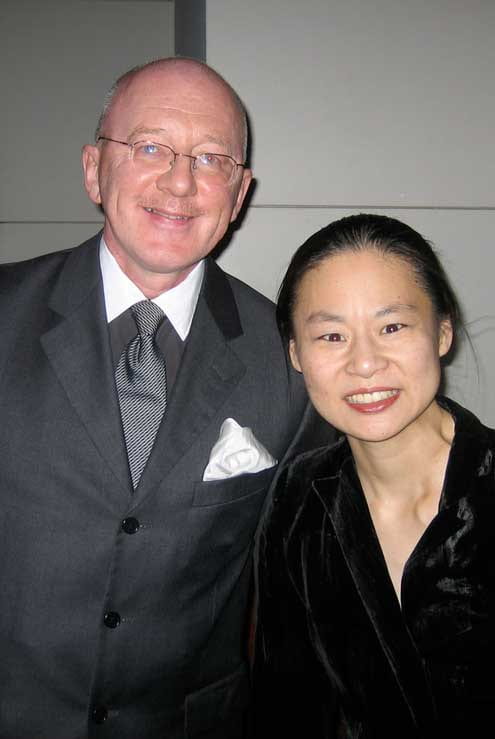 A special concert featuring internationally renowned violinist Midori Goto, who serves as the Jascha Heifetz Chair in Violin at the USC Thornton School of Music, took place on October 9 at the Częstochowa Philharmonic Hall. The concert was held in the recently reopened Częstochowa Philharmonic Hall, which was named after Bronisław Huberman—one of the most eminent violinists of the 20th century.
A special concert featuring internationally renowned violinist Midori Goto, who serves as the Jascha Heifetz Chair in Violin at the USC Thornton School of Music, took place on October 9 at the Częstochowa Philharmonic Hall. The concert was held in the recently reopened Częstochowa Philharmonic Hall, which was named after Bronisław Huberman—one of the most eminent violinists of the 20th century.
The program of the concert included works by Johannes Brahms: Symphony No. 1 in C minor Op. 68 and Violin Concerto in D major Op. 77. The Częstochowa Philharmonic Orchestra was conducted by Maestro Gabriel Chmura.
Midori performed on a Guarneri del Gesù violin once owned by Bronisław Huberman. The concert was part of the 8th Bronisław Huberman Violin Festival and was organized jointly with the Ludwig van Beethoven Association.
[Source: beethoven.org.pl]
Maestro Nowak’s Fascinating Programs
 Maestro Grzegorz Nowak continues to make waves on both sides of the Atlantic, appearing regularly in concerts at the Florida International University in Miami (where he is Artist-in-Residence) and in London, where he is the Principal Associate Conductorof the Royal Philharmonic Orchestra. Nowak’s October 11 concert in the Orchestral Masterworks Series at the FIU School of Music featured a truly extraordinary program devoted solely to music by Polish composers. The opener of Stanisław Moniuszko’s concert overture, Bajka [Fairy Tale] was perhaps the most anticipated item in the October 11 evening lineup. Karol Szymanowski’s Second Violin Concerto that followed is the lesser-known of his two violin concerti, but certainly worthy of programming more often. Lutosławski’s Partita for Violin began its life in 1984 as a work for violin and piano, commissioned by Pinchas Zukerman and Marc Neikrug at the St. Paul Chamber Orchestra. Described by the composer as one of his “most important compositions,” the Partita was arranged by Lutosławski for violin and chamber orchestra in 1988, after a request by the violinist Anne Sophie Mutter.
Maestro Grzegorz Nowak continues to make waves on both sides of the Atlantic, appearing regularly in concerts at the Florida International University in Miami (where he is Artist-in-Residence) and in London, where he is the Principal Associate Conductorof the Royal Philharmonic Orchestra. Nowak’s October 11 concert in the Orchestral Masterworks Series at the FIU School of Music featured a truly extraordinary program devoted solely to music by Polish composers. The opener of Stanisław Moniuszko’s concert overture, Bajka [Fairy Tale] was perhaps the most anticipated item in the October 11 evening lineup. Karol Szymanowski’s Second Violin Concerto that followed is the lesser-known of his two violin concerti, but certainly worthy of programming more often. Lutosławski’s Partita for Violin began its life in 1984 as a work for violin and piano, commissioned by Pinchas Zukerman and Marc Neikrug at the St. Paul Chamber Orchestra. Described by the composer as one of his “most important compositions,” the Partita was arranged by Lutosławski for violin and chamber orchestra in 1988, after a request by the violinist Anne Sophie Mutter.
The real surprise on Nowak’s Miami program was the Violin Concerto by Paul Kletzki (1900-1973), a distinguished conductor who was also an accomplished and recognized composer. Born Paweł Klecki in Łódź, Poland, he was a prodigy who began playing with the Łódź Philharmonic at the age of fifteen. He served in the army during World War I. In the newly-independent Poland, Klecki studied philosophy at Warsaw University and music at the Warsaw Music Academy, where he pursued the study of composition and violin with Emil Młynarski, the Artistic Director of the Warsaw Philharmonic Orchestra. In 1921 Klecki moved to study at the Berlin Academy and made his debut there as composer in 1923, conducting his own works. With enthusiastic support from such world-renowned conductors as Arturo Toscanini and Wilhelm Furtwängler, Klecki was invited to lead the Berlin Philharmonic in 1925. The rise of Nazism forced Klecki to move to Italy in 1933, where he taught composition and orchestration in Milan. Since Fascist-era Italy also proved to be less than welcoming territory, Klecki left for the Soviet Union in 1936 and, for the next two years, served as Music Director of the Kharkov Philharmonic Orchestra in the Ukraine. By 1939 Klecki settled in Switzerland and changed the spelling of his name after becoming a Swiss national in 1947.
Kletzki’s Third Symphony (1939) is his most significant work. Subtitled “In memoriam,” it is dedicated to the victims of Nazism. His other works include four string quartets, violin and piano concertos, songs and other chamber works, many of which were destroyed during World War II. Both his parents and sister were victims of the Holocaust and after 1942 Kletzki ceased to compose entirely, devoting himself entirely to conducting. Known for his excellent interpretations of Mahler, Kletzki made his debut with the Philharmonia Orchestra in 1947. In the mid-1950s he served as Principal Conductor of the Liverpool Philharmonic, toured extensively in the Americas, and first appeared with the Philadelphia Orchestra in 1959 and was Artistic Director of Dallas Symphony (1960-1963). Returning to Switzerland, Kletzki led Berne Symphony Orchestra for a season and then assumed the leadership of the Orchestre de la Suisse Romande from 1967-1967. Throughout his post-war career Kletzki made a number of highly-prized recordings that demonstrate his consummate musicianship and profound interpretive insights into the mainstream symphonic repertoire.
The October 11 concert of Moniuszko, Szymanowski, Lutosławski and Kletzki was presented by the Florida International Symphony Orchestra, led by Maestro Grzegorz Nowak. Violinist Robert Davidovici had a “triple duty” as soloist in Szymanowski, Lutosławski and Kletzki.
Nowak’s other recent concert in Miami, on October 20, was devoted to music by Franz Liszt. Part of a 2012 American Liszt Society Festival, it featured a weekend on music by Liszt and his contemporaries. The highlight of the program was Liszt’s superb adaptation for piano and orchestra of Schubert’s Wanderer Fantasy with soloist Kemal Gekić assisted by FIU Symphony under the baton of Maestro Nowak. Other musical offerings that weekend included performances of Liszt’s chamber music by pianists Kamilla Szklarska and Misha Dacić and violist Laura Wilcox.
On November 6, Grzegorz Nowak and the Royal Philharmonic will present an evening program of music by Borodin, Tchaikovsky and Dvorak at London’s Cadogan Hall. The cello soloist, Dmitry Maslennikov, was featured in Tchaikovsky’s beloved Variations on the Rococo Theme.
Zieleński In Venice
At the invitation of the Patriarchate of Venice, a festive concert testifying to the high level of Old Polish culture and its close links with the culture of Rome and then Europe took place on October 30, 2012 at 8:30 pm. Performed by the Collegium Zieleński ensemble (pictured above), it was the first ever presentation of the work of Mikołaj Zieleński, considered the greatest Polish composer before Chopin, at St Mark’s Basilica in Venice. The event was coordinated by the Capella Cracoviensis Foundation.
Mikołaj Zieleński—an equal to Giovanni Gabrieli, Heinrich Schütz or Claudio Monteverdi—is a representative of the Venetian school. His magnum opus, the 120-piece Offertoria totius anniand Communiones totius anni was published by Vincentius in Venice in 1611.
Knowledge of Zieleński’s works is fragmentary in Poland and even more scarce abroad. This outstanding composer was “discovered” through the efforts of Stanisław Gałoński, who founded the Collegium Zieleński ensemble. Together with invited outstanding soloists—Emma Kirkby and Joel Frederiksen—Mikołaj Zieleński’s Opera omnia was recorded on 6 CDs on the DUX label. The recording won 3 nominations for the Fryderyk award and 2 Fryderyk awards; a nomination for the Coryphaeus of Polish Music award; and 3 ORPHÉE D’OR awards from the Académie du Disque Lyrique, which were presented on 3 May 2011 and 14 May 2012 at Opéra Bastille in Paris.
There have been other special concerts devoted to Zieleński’s works over the past year: on March 1, 2011 at the Church of St Michael the Archangel (Skałka) in Kraków, on the day on which the work was published 400 years ago in Venice, and at festivals in Kraków (2010, 2011, 2012) and Stary Sącz (2011).
All activities aimed at popularizing the work of this eminent Polish composer are possible through subsidies from the Ministry of Culture and National Heritage, the City of Kraków, the Adam Mickiewicz Institute, and the Institute of Music and Dance. A major financial and organizational contribution to the concert in Venice was made by the Polish Institute in Rome and the Basilica di San Marco.
[Source: beethoven.org.pl]
Festivals
Polish Culture Festival In Beijing
 From November 2-7, 2012, the first Polish Culture Festival will take place in Beijing, China. The festival is an interdisciplinary event and its program includes classical music concerts, exhibitions, conferences, and Polish cuisine demonstrations. Over the course of the week-long Festival, the China National Symphony Orchestrawill perform under the baton of noted Polish conductors Krzysztof Penderecki and Michał Dworzyński. For other events, see the full schedule here.
From November 2-7, 2012, the first Polish Culture Festival will take place in Beijing, China. The festival is an interdisciplinary event and its program includes classical music concerts, exhibitions, conferences, and Polish cuisine demonstrations. Over the course of the week-long Festival, the China National Symphony Orchestrawill perform under the baton of noted Polish conductors Krzysztof Penderecki and Michał Dworzyński. For other events, see the full schedule here.
The Festival is co-organized by the Ministry of Foreign Affairs of the Republic of Poland, the Ministry of Culture and National Heritage of the Republic of Poland, the Embassy of the Republic of Poland in Beijing, the Embassy of the People’s Republic of China in Warsaw, the Adam Mickiewicz Institute, the Marshal Office of the Małopolska Region, and the Ludwig van Beethoven Association. KGHM Polska Miedź SA is the sponsor of the event and Polish Press Agency provides media coverage.
[Sources: beethoven.org.pl, chinagoabroad.com]
Music At The Source
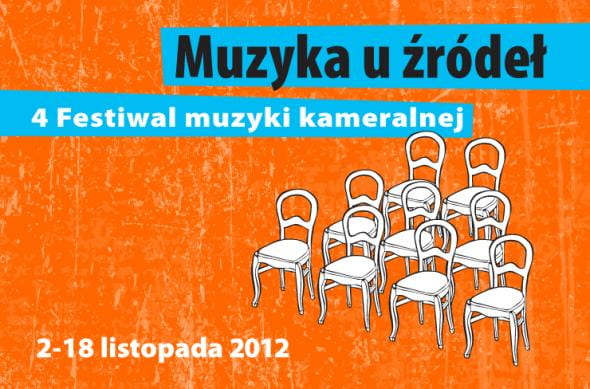 The fourth edition of ‘Muzyka na Źródeł’ [Music at the Source] Festival begins on November 2 in Bydgoszcz, Poland. The spotlight this year is on chamber music and will feature classical, jazz and pop ensembles. Among this year’s performers are Filip Wojciechowski, pianist and arranger active in the classical and jazz areas; Jan Stanienda, a well-known violin virtuoso and conductor; vocalists Ingrida Gapowa, soprano and Karol Bartosiński, countertenor; as well as the Atom String Quartet and the KROKE Ensemble. The Bydgoszcz-based Barock Quartet will act as event host.
The fourth edition of ‘Muzyka na Źródeł’ [Music at the Source] Festival begins on November 2 in Bydgoszcz, Poland. The spotlight this year is on chamber music and will feature classical, jazz and pop ensembles. Among this year’s performers are Filip Wojciechowski, pianist and arranger active in the classical and jazz areas; Jan Stanienda, a well-known violin virtuoso and conductor; vocalists Ingrida Gapowa, soprano and Karol Bartosiński, countertenor; as well as the Atom String Quartet and the KROKE Ensemble. The Bydgoszcz-based Barock Quartet will act as event host.
The Festival concerts will be held literally “at the source”—in a landmark pumping hallfor mineral spring waters. Located in a suburban parkland, this historical space was renovated over the past two years with a goal of transforming it into a concert and exhibit space. The inaugural concert of the Festival also serves as the official public opening of the building. Concert patrons include Piotr Całbecki, the provincial governor, and Rafał Bruski, President of the City of Bydgoszcz.
[Sources: polmic.pl, muzykauzrodel.art.pl]
All Souls Jazz Fest
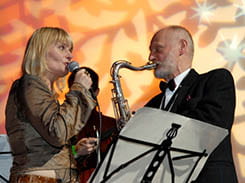 All Souls’ Day International Jazz Festival in Chicago is the biggest and most unique annual Polish-American Music Festival of internationally renowned jazz artists and talented young performers. The festival mirrors an annual jazz festival in the historic city of Kraków, Poland. Over time, the Chicago counterpart has grown to become a popular event with both the large Polish community and American music connoisseurs. This year, as many as 50+ musicians, representing 10+ groups of various jazz styles, will give enchanted performances on two stages at the Chopin Theatre on Monday, November 12, from 7:00 p.m. until 2:00 a.m. Among the performers are: Grażyna Auguscik, Jarek Smietana, Marcin Januszkiewicz & Frieda Lee, Matt Ulery, Arek Religa, Antykwariat, Wishing Well, Ted Janik…and more.
All Souls’ Day International Jazz Festival in Chicago is the biggest and most unique annual Polish-American Music Festival of internationally renowned jazz artists and talented young performers. The festival mirrors an annual jazz festival in the historic city of Kraków, Poland. Over time, the Chicago counterpart has grown to become a popular event with both the large Polish community and American music connoisseurs. This year, as many as 50+ musicians, representing 10+ groups of various jazz styles, will give enchanted performances on two stages at the Chopin Theatre on Monday, November 12, from 7:00 p.m. until 2:00 a.m. Among the performers are: Grażyna Auguscik, Jarek Smietana, Marcin Januszkiewicz & Frieda Lee, Matt Ulery, Arek Religa, Antykwariat, Wishing Well, Ted Janik…and more.
[Source: polishsocial.com, allsoulsjazz.com]
Wrocław Guitar Festival
 The Wrocław Guitar Festival deserves its reputation the most attractive event in the Polish guitar life world. Its uniqueness stems from the fantastic diversity of the styles, repertoire and genres of the guitar music presented—from the classics of the guitar and even lute music, through fascinating flamenco traditions, to hot-tempered Latino music, and bustling with the freedom and energy of jazz.
The Wrocław Guitar Festival deserves its reputation the most attractive event in the Polish guitar life world. Its uniqueness stems from the fantastic diversity of the styles, repertoire and genres of the guitar music presented—from the classics of the guitar and even lute music, through fascinating flamenco traditions, to hot-tempered Latino music, and bustling with the freedom and energy of jazz.
One of the highlights of this year were the new compositions prepared by the Marcin Olak Trio for the Festival and presented during a concert in Firlej on Saturday, 13 October. The same compositions are included on the group’s new album, Crossing Borders, considered to be the most original of all of guitarist Marcin Olak’s albums. Crossing Borders features works inspired by ethnic music, with tracks such as Tańce Ludowe Witolda Lutosławskiego[Spring Dances of Witold Lutosławski], Responsorium referring to the traditional psalm form, and the pieces Crossing Borders – episode 1 and Crossing Borders – episode 2, which are an unusual combination of ethnic elements with trance energy.
[Sources: gitara.wroclaw.pl, marcinolak.com]
Discography
New On Emi Classiscs – Poland
 Feelharmony
Feelharmony
Compositions by KROKE; Arrangements by Krzysztof Herdzin
KROKE, Sinfonietta Cracovia, Anna Maria Jopek – vocals, Sławek Berny – percussion, Krzysztof Herdzin – cond.
EMI Music Poland 11949961
KROKE (which means Kraków in Yiddish) was formed in 1992 by three friends and graduates of Kraków Academy of Music: Jerzy Bawoł (accordion), Tomasz Kukurba (viola) and Tomasz Lato (double bass). The group members completed all stages of standard music education, including jazz and modern music. KROKE began to play music which was deeply set in Jewish tradition, and strongly influenced by Balkan music, to enrich it later on with Oriental and Indian sounds, elements of jazz and world music, creating their own characteristic style.
[Sources: polmic.pl, kroke.krakow.pl]
Crossing Genres With Crossing Borders
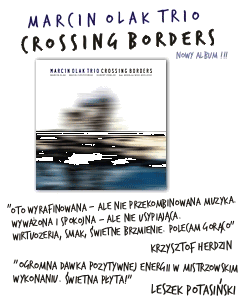 Crossing Borders
Crossing Borders
Compositions and arrangements by the Marcin Olak Trio
Marcin Olak – classical and acoustic guitars, Maciek Szczyciński – double bass, Hubert Zemler – drums, and Mikołaj Miki Wielecki – percussions
Luna Music LUNCD297
This October, a new album by the Marcin Olak Trio was released. Entitled Crossing Borders, its official premiere took place at the Trio’s concert during the Wrocław Guitar Festival at the Firlej Jazz Club on October 13.
It is quite varied stylistically as it includes compositions by the leader— guitarist Marcin Olak—as well as variations on Polish folk melodies by Witold Lutosławski and compositions by other trio members—bassist Maciej Szczyciński and drummer Hubert Zemler. Stylistically the album remains in the contemporary improvised chamber music idiom and sonically is reminiscent of such artists as Henry Treadgill or Oregon.
[Source: marcinolak.com]
Anniversaries
Born This Month
- 1 November 1901 – Szymon LAKS , composer, violinist (d. 1986)
- 2 November 1876 – Eugeniusz MORAWSKI, composer, conductor (d. 1948)
- 3 November 1915 – Henryk JABŁOŃSKI, composer
- 4 November 1857 – Stanislaw NIEWIADOMSKI, composer (d. 1936)
- 6 November 1860 – Ignacy Jan PADEREWSKI , pianist, composer, statesman (d. 1941)
- 23 November 1933 – Krzysztof PENDERECKI , composer, conductor
- 24 November 1932 – Andrzej KURYLEWICZ, composer, jazz pianist
- 24 November 1899 – Jan MAKLAKIEWICZ , composer, teacher (d. 1954)
- 26 November 1896 – Józef KOFFLER, composer (d. 1944)
- 27 November 1893 – Stanisław WIECHOWICZ, composer, choral conductor (d. 1963)
- 28 November 1928 – Jan FOTEK, composer
Died This Month
-
1 November 1947 – Władysław POWIADOWSKI, choral conductor, teacher (b.1865)
-
2 November 1929 – Stanisław BARCEWICZ, violinist, teacher (b.1858)
-
2 November 1881 – Jan Nepomucen BOBROWICZ, guitarist (b.1805)
-
3 November 1888 – Józef BRZOZOWSKI, composer, cellist, conductor, teacher (b.1805)
-
5 November 1946 – Zygmunt STOJOWSKI , composer, pianist, teacher (b. 1870)
-
9 November 1856 – Aleksander MARTIN, composer, violist (b. 1856)
-
11 November 1912 – Józef WIENIAWSKI, pianist, teacher, composer (b.1837)
-
15 November 1853 – Józef NIEDZIELSKI, voice and violin teacher (b.1793)
-
15 November 1986 – Aleksander TANSMAN , composer, conductor, pianist (b. 1897)
-
14 November 1860 – Feliks NOSKOWSKI, pianist, teacher (b.1874)
-
26 November 1855 – Adam MICKIEWICZ, romantic poet, texts used by many composers (b.1798)
-
29 November 2010 – Irena Anders, singer, actress, cultural ambassador (b.1920)

